Ethics Hub
Scenario: Your instructing solicitor asks you to reduce the costs you have apportioned to their client’s former solicitor
You are a working on a matter for Shepherd & Downey, a local solicitors firm, who are representing Mrs Armitage. Part way through the proceedings, Mrs Armitage decides to instruct new solicitors. She instructs another local firm, Malik Solicitors. Shepherd & Downey transfer the file accordingly. You have successfully worked with Shepherd & Downey and Malik Solicitors on several different previous matters. Because of this, Malik Solicitors instruct you to continue acting on the matter.
At the end of the proceedings, a lump sum costs award is made to Mrs Armitage. You are asked to handle apportioning the recovered costs between Shepherd & Downey and Malik Solicitors.
After you have sent your calculations to both firms, Malik Solicitors contacts you to say that they had to address several errors on the file before they were able to proceed. They argue that Shepherd & Downey’s fees should be reduced accordingly. When you raise this with Shepherd & Downey, they say that Malik Solicitors are incorrect in believing there to have been errors, and that Malik has actually made a significant error themselves. They say that Malik Solicitors’ costs should therefore be reduced.
What do you do?
- As a Costs Lawyer, your client is the person for whom you act, including (where the context permits) a prospective or former client.
- You may be instructed by another professional, such as a solicitor or barrister (your ‘professional client’), to provide services in relation to a client for whom they are acting. In this situation, the person or organisation who has instructed your professional client is your client, and might sometimes be referred to as your ‘underlying client’ or ‘ultimate client’. In this scenario, Shepherd & Downey and Malik Solicitors are your professional clients, and Mrs Armitage is your ultimate client.
- As a Costs Lawyer, you have duties and obligations to Shepherd & Downey and Malik Solicitors, and Mrs Armitage as set out in the Code of Conduct. However, your duty to your ultimate client – Mrs Armitage – prevails. Your overriding duty is to Mrs Armitage, and you must act in her best interests regardless of the consequences for your professional clients. In the event of a conflict, the interests of Mrs Armitage take precedence over those of your professional client.
- It is not your duty to advise on potential mistakes made by either firm. You should make it very clear to Shepherd & Downey and Malik Solicitors that you will not become involved in deciding whether any errors were made, or who was responsible. You should also make it clear to them that they should make Mrs Armitage aware of the potential errors.
- As your overriding duty is to Mrs Armitage, and in the interests of upholding your obligations and professional reputation (and that of the wider Costs Lawyer profession), you should avoid blaming either side, taking a side or becoming involved in any arguments.
- You could consider dividing the lump sum up on a pro rata basis. You could also look at the PODs and work out if any of the alleged mistakes have led to a loss or reduction in the relevant legal costs which relate to the mistakes. Once you have established how the costs should be apportioned, you could also ask the opponent to confirm the split of the lump sum.
- Principle 1.1 – You must act honestly and with integrity, not only in your professional life but also in your private life where your behaviour might reasonably be considered to undermine your adherence to the core ethical principles of the profession.
- Principle 1.7 – You must not act in any way which is likely to diminish the trust the public places in you or in the profession of Costs Lawyers.
- Principle 2.5 – You must support the proper administration of justice by promoting the appropriate and cost-effective use of the resources of the court and the parties.
- Principle 3.1 – You must act at all times in the best interests of your client, except where this conflicts with your duty to act independently in the interests of the proper administration of justice or where otherwise permitted by law. You must act in the best interests of your client regardless of the consequences for your professional client or other intermediary. You must not permit a professional client, employer or any other person to limit your ability to fulfil this duty.
See our guidance on the following topics in the Ethics Hub:
- Balancing the interests of your ultimate client and your professional client
